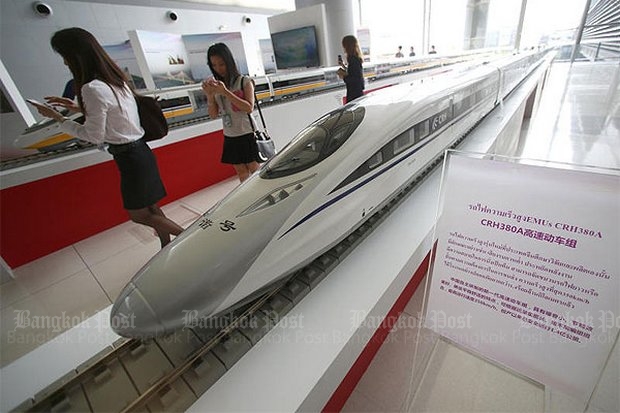
Bidding for the Bangkok-Hua Hin high-speed train project is likely to be delayed after the State Railway of Thailand (SRT) was told to sound out the market more, an SRT source said.
The State Enterprise Policy Office (Sepo) thought efforts to gauge interest from potential investors were inadequate so it has asked the railway agency to conduct another round in compliance with the public-private partnership law, said the source.
"The SRT sent out a letter to private investors without holding an open forum. Sepo found this unacceptable," the source said.
The SRT will need about two months to prepare a second attempt at sounding out the market, according to the source.
The 94.67-billion-baht Bangkok-Hua Hin rail line and the Bangkok-Rayong route worth 153 billion baht are among mass-transit projects set for fast-track consideration under the Public-Private Partnership (PPP) scheme.
According to the source, the Bangkok-Rayong route has not been submitted to Sepo for consideration pending a further study on potential areas for commercial development to create revenue and returns on investment.
Transport Minister Arkhom Termpittayapaisith has told the SRT to prepare all necessary information, especially commercial development proposals, before the project is submitted to the PPP committee to ensure speedy consideration.
The source said both high-speed projects are likely to be financed under a net-cost PPP model, which is used for the Yellow and Pink mass-transit projects.
Under this model, the government is responsible for land expropriation fees and subsidies while the private sector will invest in the rail system and operate it and provide maintenance for the line under a 30-year contract.
The SRT is likely to allow investors to change the locations of train stations for commercial development purposes with certain conditions.
"Potential investors may find the eastern rail route unattractive due to possible low returns. So the SRT has to grant them the right to change train stations on the condition they be responsible for redesigning them and providing new environment and health impact assessment studies," the source said.
